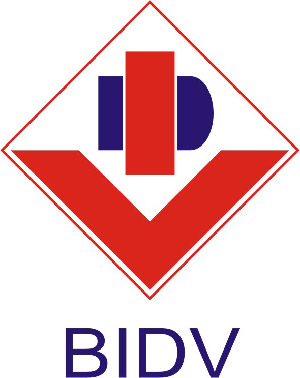
| BIDV to make IPO soon, individual investors seem not interested | |
As planned, in December, Bank for Investment and Development of Vietnam (BIDV) will make IPO (initial public offering) with about 22% of its chartered capital. Of which, BIDV will auction 3% (nearly 85 million shares) to the public, 1% of preferential shares for staff, 3% for BIDV’s labor union and 15% remaining will be offered to foreign strategic partners. The information about BIDV’s IPO seemed not attracting the interest of individual investors. From early this year so far, the VN Index of Hochiminh Stock Exchange (HoSE) dropped by 30%. Individual investors, therefore, have been affected and even suffered heavy losses. Meanwhile, in 2011, bank shares were not “king” shares as previously. Since after the Lunar New Year 2011, the price of VCB share of Vietnam Commercial Joint Stock Bank for Foreign Trade (Vietcombank-VCB) has dropped over 40%, CTG share of Vietnam Commercial Joint Stock Bank of Industry and Trade (VietinBank-CTG) has also declined over 30% and EIB share of Vietnam Export Import Commercial Joint Stock Bank (Eximbank-EIB) has been traded around 13,000 dong per share, little higher than the face value. Thus, bank shares have not maintained its attractiveness for individual investors. Regarding BIDV’s IPO, there are a number of factors that individual investors are not interested. First, so far, there have been nine bank shares listing on both bourses namely HoSE and Hanoi Stock Exchange (HNX). The market price of these shares is only equivalent to the offering price of BIDV share. Thus, after the IPO, the share price of BIDV will be hard to increase beyond the price level of bank shares currently, which means that the ability to achieve high profit in this stock is very difficult, especially when the Vietnam’s stock market is forecasted to remain gloomy next year. Second, trading for the listed shares is always vibrant while it is hard to forecast about trading of BIDV share. According to the plan of BIDV, after IPO, it will take more six months, or about in early the third of 2012, BIDV share will be listed on the stock market. By that time, if the market is not brighter, individual investors will be significantly damaged in price. Mr. Phan Dung Khanh, Head of Analysis and Investment Consulting Department of Kim Eng Securities Co, said that since the information on the IPO of BIDV so far, his company has not received any advice request from the individual investors. However, according to the information from BIDV’s auction agent namely BIDV Securities Co (BSC), up to December 16, 2011 there were 11,238 investors registering to join the share auction of BIDV, with a total registered volume of 70.86 million shares, equaling to 83.6% of the total offered volume for the auction. So there is base to believe that BIDV’s share volume for the auction will be sold out. If not attracting individual investors, BIDV will still have chance from the institutional investors. Before the IPO, BIDV revealed that there have been more than 40 foreign financial institutions showing intention to buy shares of the local bank. Mr Andy Ho, Managing Director of VinaCapital Investment Fund Management Co, said he is really interested in this IPO. He declined to mention his specific plan but said “VinaCapital representative will meet with leader of BIDV to exchange and learn more about the IPO.” VinaCapital has conducted many investments in state-owned companies that were equitized such as Vietnam Dairy Products Co-Vinamilk (VNM), Hau Giang Pharmaceutical Co (DHG) and VCB. The volume of shares held in each company was not disclosed. He only said that the amount of capital poured into investments was about $20-50 million (420 billion dong-1.05 trillion dong). Looking back at the position of BIDV in Vietnam’s banking sector, we can see some “assets” of this bank that financial institutions want. According to the prospectus of BIDV, reviewing criteria such as total assets, outstanding loans, total deposits and business network, the bank ranks at the second position in the Vietnam’s banking system, just after the VietinBank. In addition, the percentage of people using bank accounts and payment cards is not high. This is an opportunity for BIDV to expand its customer network. So, if becoming a shareholder of BIDV, the financial institutions – foreign banks will enjoy the advantages such as credit cooperation and leverage the branch and customer network of this local bank. Thus, if not selling out the share volume being issued to the public (3%), BIDV still has hope in 15% stake to be sold for foreign strategic partners, plus the sale of 1% for its employees and BIDV labor union (3%). The starting price for the share auction at 18,500 dong/share will not affect much the bank’s plan to sell shares to strategic shareholders because strategic shareholders may be favored to buy share equal or below this price. However, concern is one thing, but buying or not is another story. In the IPO of two state-owned enterprises recently namely Mekong Delta Development Bank (MHB) and Vietnam Steel Corp (VNSteel), there were any foreign investors participating to the auction, while earlier they had also expressed interest in IPOs of these two companies. | |
| Vietbiz24 |
